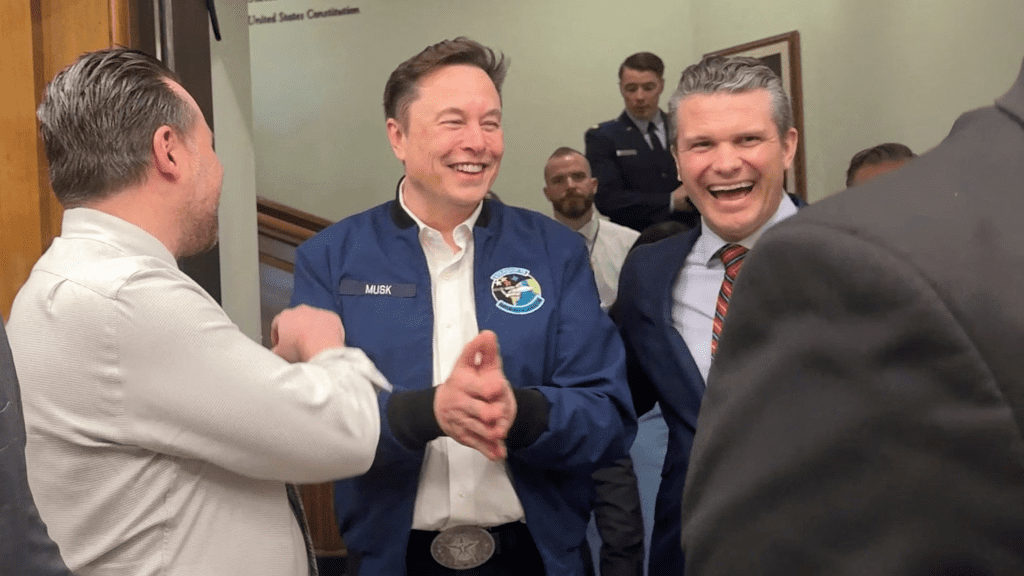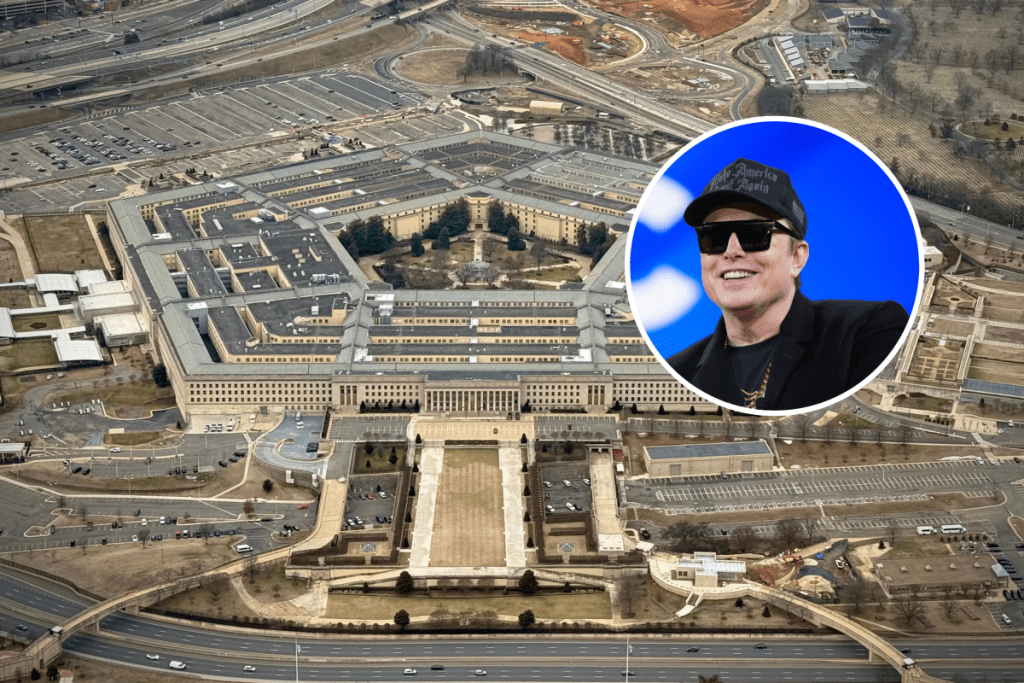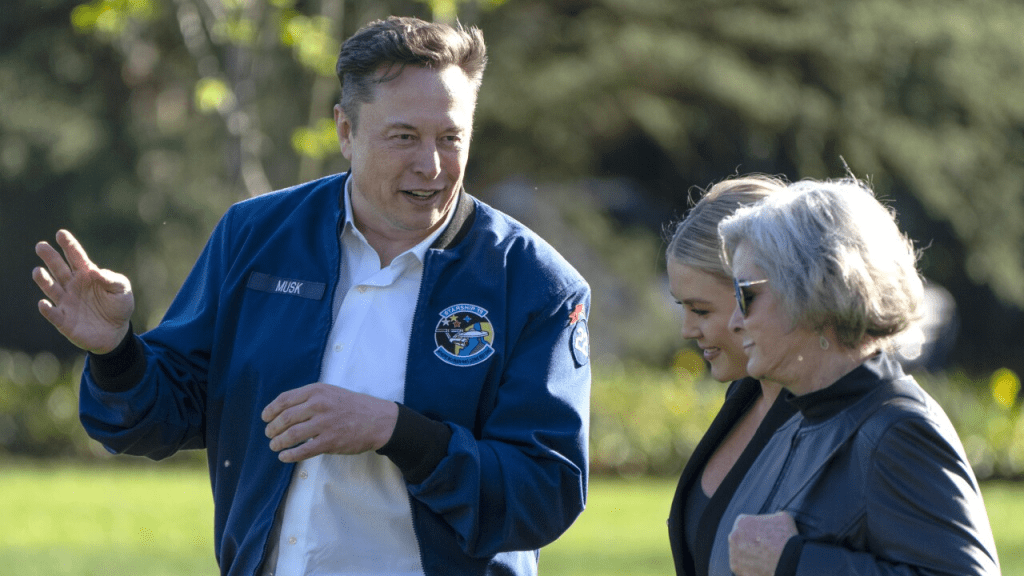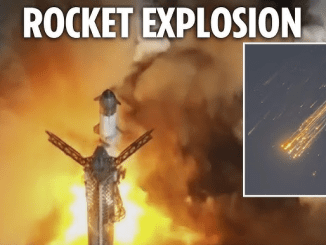
Elon Musk, the visionary entrepreneur known for his groundbreaking work with SpaceX and Tesla, is reportedly negotiating a secretive $10 billion deal with the U.S. Department of Defense to develop advanced space defense systems. This rumored collaboration could change the landscape of space security and further solidify Musk’s role as a key player in both the technological and defense sectors.
Musk’s companies, particularly SpaceX, have already had a profound impact on space exploration, and this new venture could revolutionize the way the U.S. protects its space assets, while also raising new concerns about the concentration of power in the hands of a private tech mogul.
Musk’s involvement in this project could have profound implications for the future of space defense. The $10 billion deal is said to focus on the development of satellite defense systems capable of safeguarding U.S. interests in space from potential threats, including cyber-attacks, missile launches, and anti-satellite weapons.
As nations around the world continue to expand their space capabilities, the need for advanced defense systems to protect critical infrastructure, like communication satellites, space stations, and other space-based assets, becomes increasingly urgent. If Musk succeeds in securing the deal, it would position him at the center of the global space defense industry, and his companies would play a central role in shaping the future of space security.

The rumored deal is just the latest chapter in Musk’s growing influence on global technology and space exploration. SpaceX, under Musk’s leadership, has already made significant strides in space travel, with reusable rockets, successful missions to the International Space Station, and plans for Mars colonization.
Tesla, Musk’s electric vehicle company, has become synonymous with sustainable energy and has helped push the world toward a greener future. Now, Musk appears to be setting his sights on an area that has traditionally been the domain of government agencies and defense contractors—the protection of space assets.
The U.S. government has long been concerned with securing its space-based infrastructure, and Musk’s proven track record with SpaceX could make him the ideal partner for this ambitious new project.
The potential scope of the $10 billion deal is vast. According to insiders, Musk is working with the Pentagon to develop advanced defense technologies that could be deployed in space, providing protection against the growing number of threats to satellite systems.
These threats range from the growing capabilities of rival nations to cyber-attacks that target vulnerable satellite communication systems. Musk’s involvement in the project would likely center around leveraging SpaceX’s cutting-edge technology, such as satellite launches and space infrastructure, to create robust defense systems capable of mitigating these risks.

SpaceX’s expertise in rocket science and satellite technology could be crucial in building the next generation of space defense systems. The primary objective of the project would be to protect the United States’ critical space infrastructure.
As the world becomes increasingly reliant on satellites for everything from global communication to GPS navigation, the need for robust space defense systems becomes ever more pressing. A single attack on a satellite could cripple a country’s communication systems, military operations, and even its economy.
Given Musk’s deep understanding of space technology and his commitment to advancing space exploration, it’s not surprising that he is being considered as a key player in developing these technologies. Musk’s influence in the space industry has already been transformative, and his involvement in this project could take U.S. space defense capabilities to new heights.
The competition for space dominance is heating up, particularly with countries like China and Russia investing heavily in space technology and expanding their military capabilities in space. Musk’s move into space defense is a direct response to this competition, as the U.S. looks to maintain its lead in space technology.

By developing advanced space defense systems, Musk and SpaceX could help ensure that the U.S. retains control of its space infrastructure and prevents adversarial nations from gaining an upper hand. Musk’s expertise in the space industry makes him uniquely positioned to address these challenges, and his companies are already well-equipped to handle the demands of such a complex and critical project.
However, Musk’s increasing involvement in space defense also raises questions about the role of private companies in global security matters. The development of these advanced defense technologies would give Musk unprecedented influence over the future of space security.
While Musk has repeatedly emphasized that his goal is to ensure the responsible and ethical development of technology, the prospect of a private entrepreneur playing such a central role in national defense is bound to raise concerns. The concentration of such power in the hands of one individual, even one as capable and visionary as Musk, could have implications for transparency, accountability, and security.
The legal and regulatory hurdles surrounding a project of this magnitude would be significant. The U.S. government has strict regulations on defense contracts and the use of private companies in national security projects. While SpaceX’s history of working with NASA and the U.S. military may help smooth the way for this new partnership, there will still be complex legal and logistical issues to navigate.

Additionally, the ethical implications of private corporations controlling vital defense technologies in space will require careful consideration. Musk’s growing role in the space defense sector may spark debates about the balance of power between private industry and government, especially in an area as critical as space security.
The financial implications of this deal are also significant. Musk’s personal wealth, combined with the resources of SpaceX and Tesla, could enable him to take on this ambitious project, but the financial risks are substantial. Developing advanced space defense systems is a costly and complex endeavor, and if the project fails to meet expectations, the financial consequences could be severe.
However, Musk’s ability to take on big risks is part of what has fueled his success in other ventures. His work with Tesla and SpaceX, despite facing significant financial and technical challenges, has proved that he is willing to invest in the future, even if it means taking on enormous risks.
As SpaceX continues to develop its space defense capabilities, the implications for the future of space exploration and security are vast. Musk’s vision for space is not just about traveling to Mars or creating electric vehicles—it’s about ensuring humanity’s future in space and safeguarding critical space infrastructure.

The rumored $10 billion deal with the Pentagon is part of that vision, with the goal of creating a more secure and resilient space environment for the U.S. and its allies. If successful, the project could redefine the way space is protected and pave the way for future advancements in space technology.
In conclusion, Elon Musk’s rumored $10 billion deal with the U.S. Department of Defense to develop advanced space defense systems marks another bold step in his ongoing journey to reshape humanity’s future. While the details of the deal remain shrouded in secrecy, it is clear that Musk is positioning himself and his companies at the forefront of space security.
Whether this venture succeeds or faces significant obstacles, Musk’s growing influence in the space and defense sectors signals a new era in the protection of space assets. As the world’s reliance on space technology grows, Musk’s role in securing the future of space exploration and defense will likely continue to expand, bringing both challenges and opportunities to the global stage.


